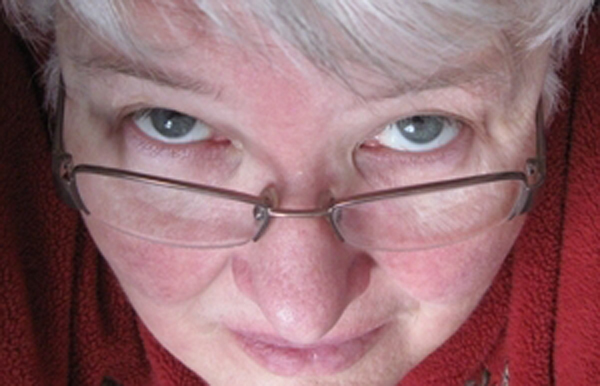Back in the last quarter of the 20th century, I lived in downtown Montreal, mostly on The Main. Buying fresh fruit and vegetables in a farmer’s market, organic or not, was not easy. It involved fighting traffic and dodging the green hornets (parking police), or dragging a cart up and down stairs, using public transportation.
Our Italian neighbours had a tiny plot of tomatoes in their front yard, measuring about 5 by 10 feet. I envied them. That’s how deprived we were.
Then we moved to the blessed boonies. It is such a luxury to live so close to organic, natural food sources.
Yet much of our agriculture is not organic or natural. I doubt too many residents view liquid manure, herbicides and pesticides as assets to the quality of air, water, soil, and the natural environment. Yes, they enable large-scale farming. No, they do not add value to the food we eat. They may contribute to fruit with perfect looks, but at the expense of taste.
In the past decade, we’ve seen a gradual movement toward smaller-scale farming that does not depend on chemical herbicides and pesticides. The organic sector is still small, but it’s growing.
Since 2015, the Quebec’s Ministry of Agriculture, Fisheries and Food has offered support for farmers converting to organic operations through the Programme d’appui pour la conversion à l’agriculture biologique (PACAB).
Minister André Lamontagne has just announced the extension of this program to March 31, 2023. The program offers financial support to convert plant, maple and honey production, as well as to construct or modify livestock facilities, to meet organic standards.
Mr. Lamontagne named the benefits of organic farming: « These foods respond to consumer concerns in terms of health, environmental protection, the fight against climate change, animal welfare and the local economy. »
The Ministry’s announcement said organic farms in Quebec more than doubled between 2015 and 2020. Now we have more than 2,400 such farms, representing nearly 9 per cent of all farms in Quebec. And surely PACAB has played a role in this growth, disbursing more than $10 million in financial support to agricultural businesses.
The demand for organic food is growing. The market in Quebec is valued at nearly $1 billion, and over $125 billion worldwide. Quebec has fully one-third of the organic farms in Canada. For information about PACAB, check out www.mapaq.gouv.qc.ca/conversionbio.
Today, our rhubarb bed alone is larger than our erstwhile neighbours’ tomato patch in Montreal. They would be shocked at the size of our garden here in the boonies. We are so blessed.
NO-MOW MAY
We who are blessed with lawns: Have you heard about the movement to not mow during the month of May? Bees, hoverflies, butterflies, beetles and other pollinators are in trouble, especially in the spring. We can at least let our dandelions grow for them: 75 per cent of the world’s main food crops and 85 per cent of wild plants rely on pollinating insects.
NECK-TO-NECK
We look the short distance across the border with a bit of envy these days. Things are opening up. So many Americans have already had their second Covid vaccinations, while Canada has lagged behind in the percentage of first shots, let alone the follow ups.
But now the New York Times reports on a new study that suggests waiting three months to have the second shot could offer better protection than having it just a month after the first. Hmm. So maybe the strategy of delaying the second shot until more people have had their first will give an additional benefit, long-term.
Last week both Maclean’s magazine and CTV reported that Canada has practically caught up with the USA on the first vaccinations. More than 46 per cent of Canadians have been vaccinated with at least one dose, compared to 47 per cent in the USA. Each day, Canada is vaccinating about 0.90 per cent of the population; the USA, only an average of 0.22 per cent. By the time you are reading this, Canada should have given a first dose of vaccine to a higher percentage of persons, compared to the USA.
Like I said, we’re neck-to-neck, at least in terms of first vaccinations.
TWIPPERS FESTIVAL
That’s Townshippers’ Festival, of course. The news: We will have one this year, throughout the entire month of September. It will be virtual, with activities for all ages.
“We’ve begun brainstorming ideas for programming and activities, and we are looking forward to discovering new and creative ways to bring people near and far together in celebration of the region’s English-speaking community, its heritage, and our contributions to the Townships,” said Rachel Hunting, Executive Director of Townshippers’ Association.
Townshippers’ Association is a non-profit, non-partisan, community organization that has been serving the English-speaking community of the historical Eastern Townships since 1979. Info: townshippers.org.
CHURCHES
United. Home worship services are available Fridays after 2 p.m. at Sawyerville United Church (box on top of freezer), or at Trinity United Church (plastic bag at basement door). To receive services by mail or email, or for pastoral care, contact Rev Tami Spires at 819-452-3685 or spiresta@hotmail.com. Facebook info: United Eaton Valley Pastoral Charge.
Baptist. In-person Sunday services for 25 or fewer persons with Covid-19 protocols in place (wash hands at the entrance, stay 2 metres apart, use assigned seating, wear masks, do not shake hands, and leave via the exit door). The service in French is at 9 a.m., and in English at 11 a.m. Persons with flu symptoms are asked not to attend services. The pastor’s message is also available on YouTube: For the link, contact Pastor Michel Houle: 819-239-8818.
Anglican. Bishop Bruce Myers continues to offer Home Prayers at 10:30 a.m. Sundays on Facebook, and at quebec.anglican.ca (Worship Videos). Info: 819-887-6802, or quebec.anglican.ca.
Do you have news to share? Call 819-300-2374 or email rawrites@gmail.com by May 31 for publication June 9, and by June 14 for June 23.
Chroniques
BLESSED BOONIES

Article précédentDudswell : En préparation pour la saison estivale














